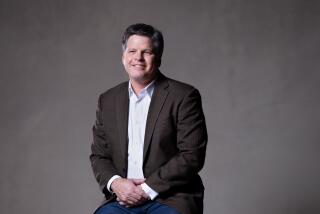Laguna Beach isn’t above handouts
Tom had been a working man his entire adult life. He made good money in the car business and parlayed that good fortune into trips to some of the world’s great locales. As he approached his 60s, life was looking pretty sweet.
But last week he found himself back at a destination that he never would have imagined visiting: a food distribution center in Laguna Beach.
And instead of leaving with trinkets or lasting reminders of an exciting vacation, he walked away with two boxes of cereal, salmon patties, two cans of beef stew, scones and a loaf of bread.
The man who once thought he had all he needed, now, at 60, needed free food.
“I always did what I wanted to do, never had to look for jobs because they were always offered to me, and I had these great, exciting jobs,” he said from the apartment he and his estranged wife are vacating. “I always thought I’d be fine, always be able to work and never thought that anything like this could happen.”
Food giveaways aren’t uncommon, especially in recession-racked America. But influenced by what is shown on TV and in the movies, the outside world doesn’t expect to find them in the seemingly luxuriant Laguna Beach, with its hillside mansions and Pacific Ocean views.
And certainly not for someone with Tom’s pedigree.
On his first visit to the center six months ago, he recognized some of the homeless people who stay in a park near his apartment off Pacific Coast Highway. “They kind of recognized me, which was really odd. They gave me looks like, ‘What are you doing here?’ ”
He remembers driving there. “It was surreal,” he said. “Amazement. It was guilt. What have I done to myself that I’m now driving out to ask for food? But when I got there, the people were so nice, and I saw people in the same situation.”
Tom’s need stemmed from a complex series of events: losing a job and not landing another. The loss of his wife’s income and their subsequent breakup. Not saving enough money. And, more recently, needing what money he has to pay bills and resuscitate a business venture that he thinks will pay off.
It’s not shameful to need food, but Tom doesn’t want to identify himself publicly as a food recipient. His self-consciousness is a familiar story to the officials at the Laguna Relief and Resource Center on Laguna Canyon Road.
“Middle-class people never had to use this,” said Tony Rogers, the center’s manager. “They’re embarrassed. A lot are very tentative; they want to tell you they don’t really need it yet, but they only had to come in because they were desperate.”
Historically, Rogers said, the clientele has been low-income, minimum-wage-earning families. “Typically, the mother is a housewife, the father works minimum wage, and in Southern California, that’s not enough to live on.”
And as for the small minority of customers who are like Tom?
It’s the economy, of course.
Andy Siegenfeld, the center’s director, said he’s not surprised that the recession has driven white-collar professionals to seek food assistance. “Everyone I know who’s wealthy has altered their lifestyles,” he said. They don’t travel like they used to and have lost jobs, cars and homes. Some went from $75,000 to $80,000 jobs down to where they can’t get part-time clerical work.”
Siegenfeld said the center used to serve about 15 families a day. That number has risen as high as 80 this year, but now has settled back a bit. But it still is three to four times more than a couple of years ago, he said.
Tom has visited the center several times in the last six months but thinks he may be near the end of his need. He took advantage of the food center not because he was dead broke, but because not spending money on food freed him to pay off monthly bills and put cash into the new business, which he sees as his way out of the downward spiral.
That, according to workers at the center, is typical of many recipients. And, they say, it’s a large part of the rationale behind free food: Not having to spend $50 to $75 eases the financial load.
In general, center officials use the honor system. “We don’t ask you to produce your bank account to prove you’re poor,” Rogers said. “In reality, anybody who walks in the door, we’ll give food to.” But, he said, by a person’s second or third visit, officials make an effort to get to know the person and will have a feel for his or her circumstances.
Tom said he has learned an important lesson from his experience: “I never worried about a dollar, because I always knew I’d earn another one. But what the last year and a half has taught me is not only the value of a dollar but the value of a penny.”
He said that despite being grateful for the center’s help, he still feels sheepish about needing it. “You still look at it as a failure of what you’ve done, but I don’t feel as guilty or as bad as I did,” he said. “When you look at the economy, there are a million people like me out there.”
His close friends know he’s accepted the food, but “it’s not something I’d want my neighbors in Laguna Beach to know,” he said. He has at least one friend in the same boat, and he discreetly mentioned to her that she could accept free food.
She told Tom she already had.
--
More to Read
Sign up for Essential California
The most important California stories and recommendations in your inbox every morning.
You may occasionally receive promotional content from the Los Angeles Times.










